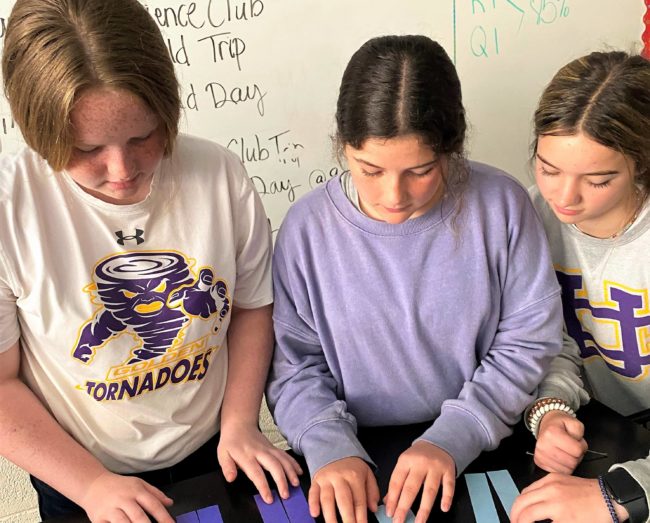
By Mike Hutchens, UC Schools Communications Director
Union City, Tenn.–Students in Karyn Hill’s 7th-grade science classes were fascinated recently by a class project that examined the many genetic variations possible in the offspring of organisms with two parents.
The Union City Middle Schoolers created Reebops – imaginary organisms made out of marshmallows, pins and cocktail sticks – as part of their study. Reebops have 16 chromosomes (in eight homologous pairs in their body cells), and their features are determined by the characteristics encoded in their chromosomes.
Of the 60 Reebops created by students, only two were exactly alike.
Humans have thousands of traits coded for by DNA inherited from both parents, thus creating an astronomical amount of variation for offspring – even ones with the same parents.
“I think this activity helps students understand the randomness of the inheritance of traits,” Hill said. “Although we may favor one parent more, we inherit exactly half of our DNA from each parent.
“Because of the complexity of processes like meiosis and independent assortment, the traits that we actually show can be very random.”
Students worked in pairs on the project with the student procedure sheet, envelopes of chromosomes, a decoder key and the materials to build their baby Reebops provided by their teacher.
They added colored thumb tacks or smaller marshmallows for eyes and a nose. Students were encouraged to add “humps” to the body segments with pins or other smaller marshmallows and had to designate their Reebop as a male or female.
Reebop organisms tend to live in discarded shopping bags and are rarely seen in the wild as they are extremely fast. If a male and a female Reebop are held together in captivity, a room quickly can become filled with Reebops.




